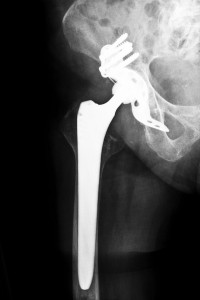There are thousands of medical products and devices on the market to treat various types of illnesses and life-threatening diseases or conditions. For the majority of those patients who use such devices, their quality of lives is greatly improved. However, when a medical device or product is defective it can result in a serious injury and even death, and possibly one or more surgeries that can be life threatening in order to fix the problem. If a medical device is placed in a patient’s body and then it malfunctions, it is often times hard to know it has malfunctioned until it is too late and much damage is done. Additionally, if the defective device needs to be replaced, that results in yet another costly and dangerous surgery that must be performed. In some cases, the patient is older or has too many health problems that it becomes too dangerous to operate; therefore, the patient may have to keep the defective device.

It is unfortunate that in recent years more and more medical devices have not worked as they were intended due to either a defect in design or a defect in manufacturing. In some instances, patients have received improper instructions on how to correctly use the device, while in other cases there have been poor instructions from a manufacturer given to doctors regarding the correct usage of a device. Although medical devices in the United States are monitored by the Food and Drug Administration, often times problems can arise after the product has been put on the market and received by numerous patients.
Common reasons these issues can occur is if a designer or manufacturer does not test the device sufficiently, if the device is manufactured inexpensively with materials that are low quality, or if a product is not immediately recalled by the manufacturer when problems are discovered. Some medical devices and products that have been recalled due to defects recently include joint replacements, pacemakers, heart valve implants, breast implants, hip implants, defibrillator implants and intrauterine devices. Other types of medical devices that could possibly be defective include heart valves, heart stents, medicine pumps, infusion pumps, surgical implants and defective prosthesis devices.
Patients who are hurt or families of patients who were even killed due to a defective medical device have the right to receive financial compensation. A patient can suffer a great deal of pain if they have a defective medical device, as well as the stress of financial difficulties taking an emotional toll on them or their families. Patients and their families can receive monetary compensation for pain and suffering, lost income, medical costs, along with other expenses and non-monetary losses.
Texas Defective Medical Device Lawyers
Texas Attorney Group believes that manufacturers of medical devices have a duty to produce safe products and if they fail to uphold that duty they need to be held responsible. If you or someone you love has been hurt by a defective medical device, whether or not it has been recalled, contact Texas Attorney Group. We will match you with our affiliated Texas defective medical device lawyers who can help seek compensation for your injuries from a defective medical device.





